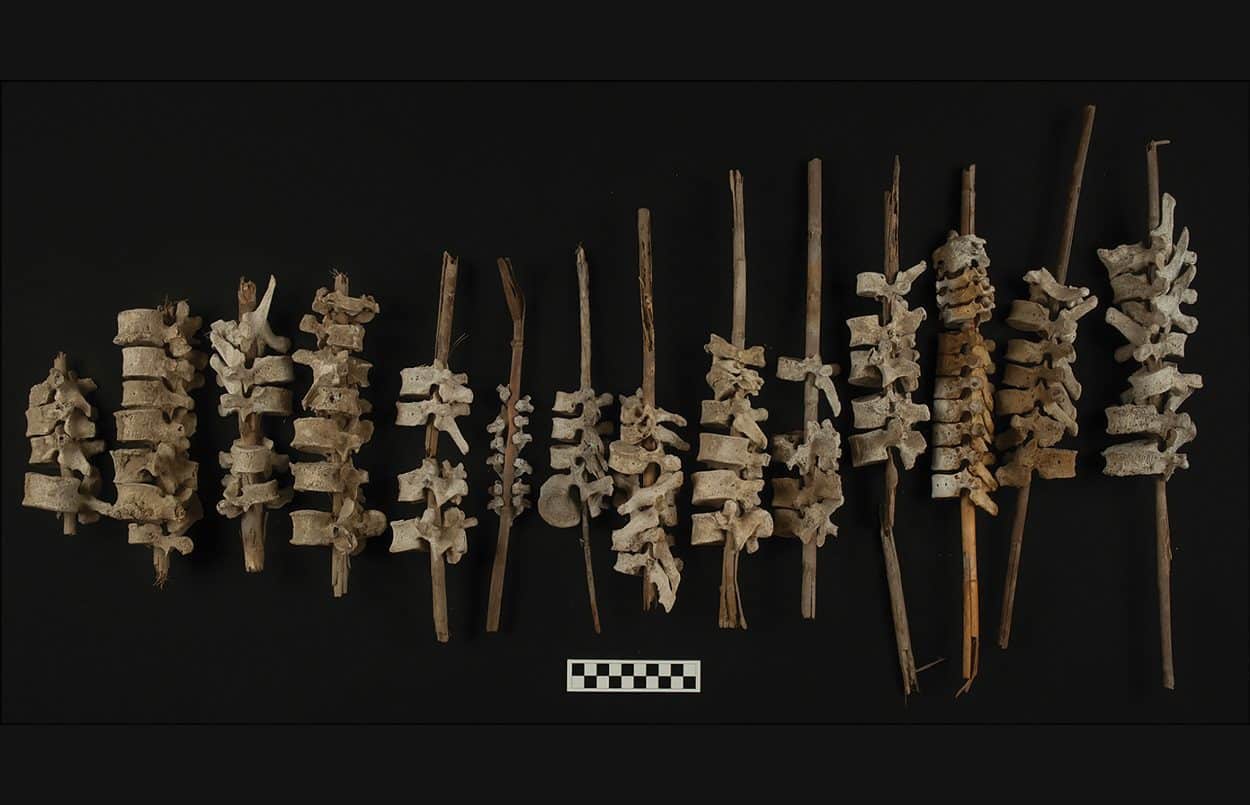Archaeologists have found almost 200 examples of human vertebrae threaded onto reed posts in the Chincha Valley of Peru.
The Chincha Valley had been home to the complex Chincha Kingdom from AD 1000-1400. They established an alliance with the Inca Empire and were eventually consolidated into it.
The discovery was made by an international team of researchers, who have published the results of their study in the journal Antiquity.
The team was excavating elaborate indigenous graves known as chullpas, where they found human vertebrae threaded onto reed posts that date from the 16th century AD.
Ultimately, the team discovered 192 examples, where in almost every case, each appears to have been made from the remains of a single individual.

An analysis suggests that the remains date from AD 1450-1650, coinciding with the end of Inca rule of the region and the start of European colonisation.
“Looting of Indigenous graves was widespread across the Chincha Valley in the Colonial period,” said Dr Jacob L. Bongers from the University of East Anglia. “Looting was primarily intended to remove grave goods made of gold and silver and would have gone hand in hand with European efforts to eradicate Indigenous religious practices and funerary customs.”
Additional analyses of the vertebrae-on-posts suggested that these items may have been created to repair the damage done by this looting.
Bodily integrity after death was important to many Indigenous groups in the region. The nearby Chinchorro people developed the first known techniques for artificial mummification, millennia before Ancient Egypt. When mummies in the Andes were destroyed by Europeans, Indigenous people salvaged what they could to make new ritual objects. The vertebrae-on-posts may have been part of a similar effort to reconstruct bodily integrity after looting. Find out more
Header Image Credit : Antiquity





